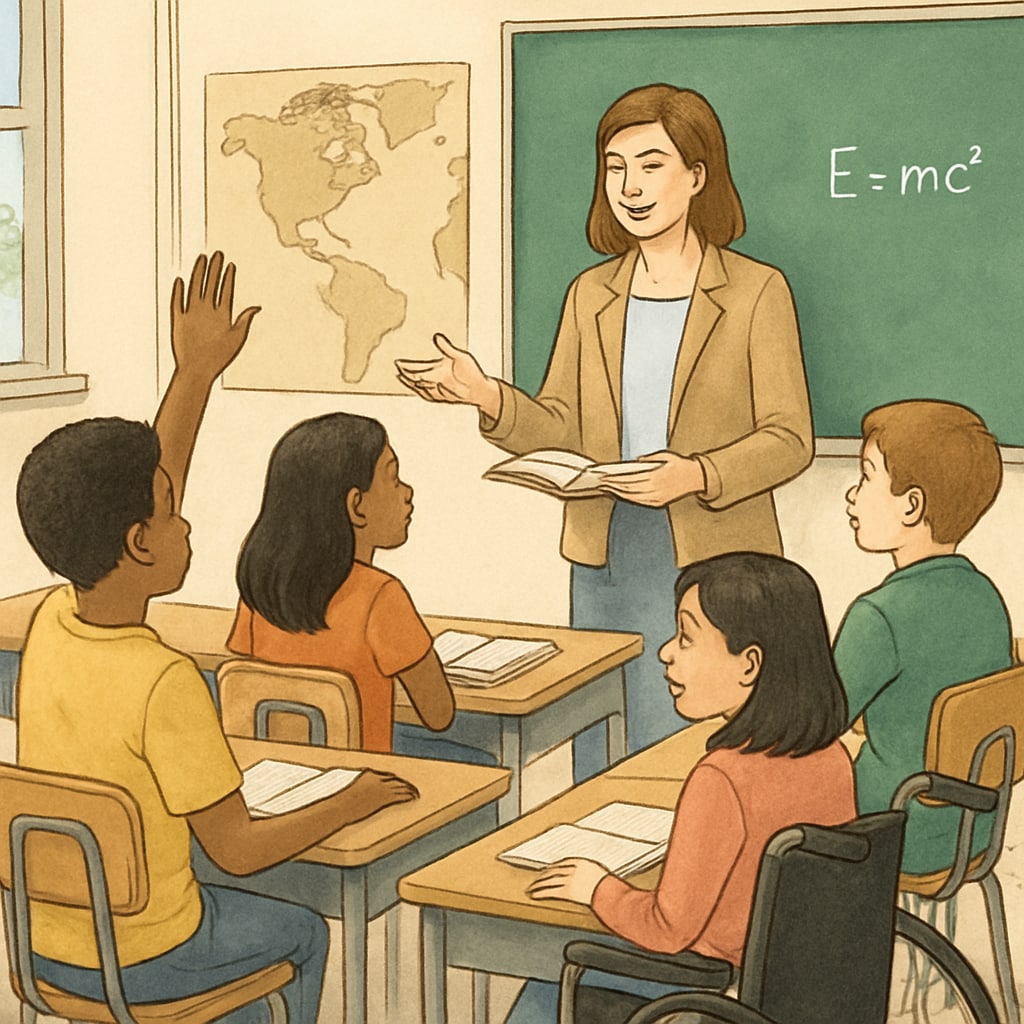The recent introduction of political ideology testing in teacher applications in Oklahoma has ignited significant debate. This controversial policy, which aims to scrutinize educators’ political beliefs, raises concerns about the implications for K12 education and the broader principles of freedom and diversity in schools. By prioritizing ideological alignment over professional qualifications, Oklahoma risks creating a restrictive educational environment that may undermine the essential values of open dialogue and critical thinking.
Political Screening in Teacher Applications: A Contentious Move
Oklahoma’s decision to implement political ideology testing as part of its teacher application process has sparked nationwide criticism. Supporters argue that the policy ensures teachers align with the state’s values and prevent perceived “indoctrination” in classrooms. However, critics contend that this approach encroaches on educators’ freedoms and establishes dangerous precedents for ideological control in public institutions.
Such a policy raises fundamental questions. Should a teacher’s personal political beliefs determine their ability to effectively teach? And, more importantly, does this screening create a chilling effect on the recruitment of diverse educators? The answers to these questions are crucial as they directly affect the quality and inclusivity of education delivered to students.

Impacts on K12 Classrooms and Educational Freedom
The effects of political ideology testing in teacher applications extend beyond the hiring process. In the classroom, such policies risk stifling the development of diverse perspectives, which are integral to fostering critical thinking and preparing students for a pluralistic society. When teachers feel pressured to conform to a specific political ideology, the richness of classroom discussions and debates may diminish significantly.
For instance, educators may avoid discussing controversial or sensitive topics such as history, science, or social issues for fear of appearing ideologically misaligned. This self-censorship not only limits intellectual exploration but also deprives students of the opportunity to engage with differing viewpoints, a cornerstone of democratic education.
Moreover, the policy could deter highly qualified educators from outside Oklahoma from seeking teaching positions in the state. Teachers from diverse backgrounds often bring unique perspectives that enrich students’ learning experiences. However, the introduction of political screening may discourage these candidates, leaving schools to grapple with a narrower talent pool.

The Importance of Neutrality and Diversity in Education
Education thrives on the principles of neutrality, diversity, and inclusivity. Teachers are entrusted with the responsibility to create environments where students feel safe to voice their opinions, even when they differ from the norm. Imposing political ideology testing threatens this balance by prioritizing conformity over creativity and independent thought.
Experts in education policy emphasize the importance of teacher neutrality in maintaining trust and respect in the classroom. According to the Encyclopedia Britannica, education should aim to develop critical thinking rather than propagating specific ideologies. Policies such as Oklahoma’s undermine this principle, shifting the focus from student development to ideological gatekeeping.
Additionally, the concept of diversity extends beyond race, gender, and ethnicity to include diversity of thought. By discouraging teachers with differing political beliefs, Oklahoma risks creating a homogenized education system that fails to reflect the complexities of the real world. As noted by Wikipedia, diversity in education promotes empathy, collaboration, and problem-solving skills among students.
Finding a Balanced Approach
While Oklahoma’s concerns about ideological indoctrination may not be entirely unfounded, the method of political ideology testing is a blunt instrument for addressing a nuanced issue. Policymakers should consider alternative approaches that balance the need for educational oversight with the protection of teachers’ freedoms.
- Focus on teacher training programs that emphasize professional ethics and classroom neutrality.
- Conduct regular evaluations based on teaching outcomes rather than personal beliefs.
- Encourage open dialogues between educators, policymakers, and communities to establish shared goals for education.
These measures can help address concerns without undermining the principles of freedom and diversity that are foundational to quality education.
In conclusion, Oklahoma’s policy of political ideology testing for teacher applications highlights a growing tension between educational freedom and ideological control. By prioritizing neutrality and inclusivity, the education system can better serve both educators and students, fostering environments where ideas can be explored freely and critically.


